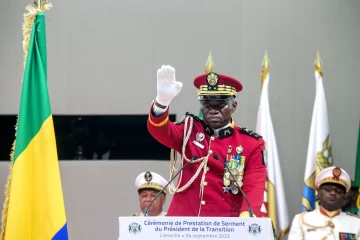When the Syrian crisis took off in 2011, millions of Syrians fled to a neighbouring country – Lebanon. Soon the Lebanese society was unable to adequately absorb all Syrians seeking refuge and provide them with adequate access to basic resources. Besides the extreme shortage in the provision of clean water, food and housing, a key dimension of the development and dignified living conditions of the refugee population is access to primary education. Even when Syrian children could enrol in public schools, a clear education gap was observed between the predominantly Arabic taught Syrian and English taught Lebanese children. This halted access for Syrian children to Lebanese education and significantly lowered their opportunity for personal development.
In an attempt to close this gap, NGOs and other initiatives started providing formal and non-formal education. The MyBookshelf project 2017 is one of those initiatives, which in collaboration with Syrian NGO Sonbola and the United Nation’s Information Center in Beirut, aimed to provide a non-formal summer education program for around 150 refugee children in the Bekaa Valley of Lebanon. During this program, international and local students and recent graduates from nine different countries delivered a cross-contextual learning curriculum, fusing cultural activities with English language literacy.

The MyBookshelf project is an example of how NGOs and development agencies worldwide increasingly work with international students and recent graduates to reach their goals. Such acts of effective volunteering can be perceived as a mutual interaction between the volunteer and local population. Moreover, this mutual interaction is supposed to benefit both the personal development of the individuals and the environment they participate in. To adequately reflect upon the impact that the international volunteers had on enhancing children’s language skills and cultural knowledge through the MyBookshelf project, our focus is therefore twofold. On one hand, we focus on the perception of the local Syrian and Lebanese communities in Lebanon of international volunteers in the region. On the other hand, we focus on the way international volunteers themselves view their capabilities and limitations related to their involvement.
Perceptions and Limitations
Key to understanding the impact of international volunteers on refugee children through the MyBookshelf project is the way in which their actions were perceived by local Lebanese and Syrian people. Conducting a number of interviews, it turned out that international volunteers were regarded positively due to the constructive impact they could make on local communities in several ways.
First of all, they were seen as capable of providing a new perspective from ‘outside’ along with specific skills. A Lebanese man from Beirut described this as following: “International volunteers can bring new and fresh ideas to the organization, like communication skills and creativity”. Secondly, it was believed that international volunteers can provide material and financial support by, for example, distributing clothes or improving the tents. Lastly, they were seen as a positive asset due to their ability to facilitate cross-cultural learning opportunities. On the one hand, international volunteers bring their cultures to Lebanon and teach the Syrian children about it. While on the other hand, international volunteers learn from the Lebanese and Syrian culture they experience, bring it back home and share it with others.

However, the positive impact of international volunteers was also perceived as limited, because most volunteers leave after a short period of time. Therefore, the situation in Lebanon, and especially that of the Syrians in Lebanon, remains highly unorganized and insecure.
To reflect upon the perceived impact of the international volunteers themselves, we will now turn to their capabilities and limitations in the MyBookshelf project. Most international volunteers had not finished their tertiary education and lacked practical work experience in the field and long-term commitment. Although this certainly limited the impact they could make, the international volunteers felt that they facilitated intercultural understanding. They reported, for example, that the short duration of their stay motivated, and in some cases pressured, them to engage more often and intensively with locals than they would have done otherwise.
In general, while it sounds paradoxical at first, short-term volunteers have more time to share with locals, staff and children, as they are not preoccupied with technicalities or trapped in a daily routine. Instead, they are motivated to have a ‘meaningful’ time in the context of an overarching project. Another benefit of working with short-term international volunteers is that, due to the short duration of the projects, it does not lead to issues of dependency. This is also the case in the MyBookshelf project, where volunteers did not replace local staff. Instead, they filled the gaps left by a lack of local volunteers and fulfilled roles distinct to those covered by locals.
Conclusion
Interviews with international volunteers of MyBookshelf and Lebanese and Syrian locals showed that, amongst other things, both groups agreed on the impact of cross-cultural learning opportunities. However, while the international volunteers see their short-term stay as beneficial to their impact, and especially intercultural understanding, the Lebanese and Syrian locals see this as limiting. All in all, while both groups positively perceive the impact that international volunteers can have, it is clear that more structural changes are needed to successfully address the education gap that Syrian children in Lebanon experience.
References
Lough, B., Margaret A., Sherraden M., O’Hara, K. “Capacity Building Contributions of Short-Term International Volunteers.” Journal of Community Practice 19, no. 2 (2011): 120-137.
Mustonen, P. “Volunteer tourism: Postmodern pilgrimage?” Journal of Tourism and Cultural Change 3, no. 3 (2006): p. 160-177.
Mustonen, P. “Volunteer tourism: Postmodern pilgrimage?” Journal of Tourism and Cultural Change 3, no. 3 (2006): p. 160-177.


